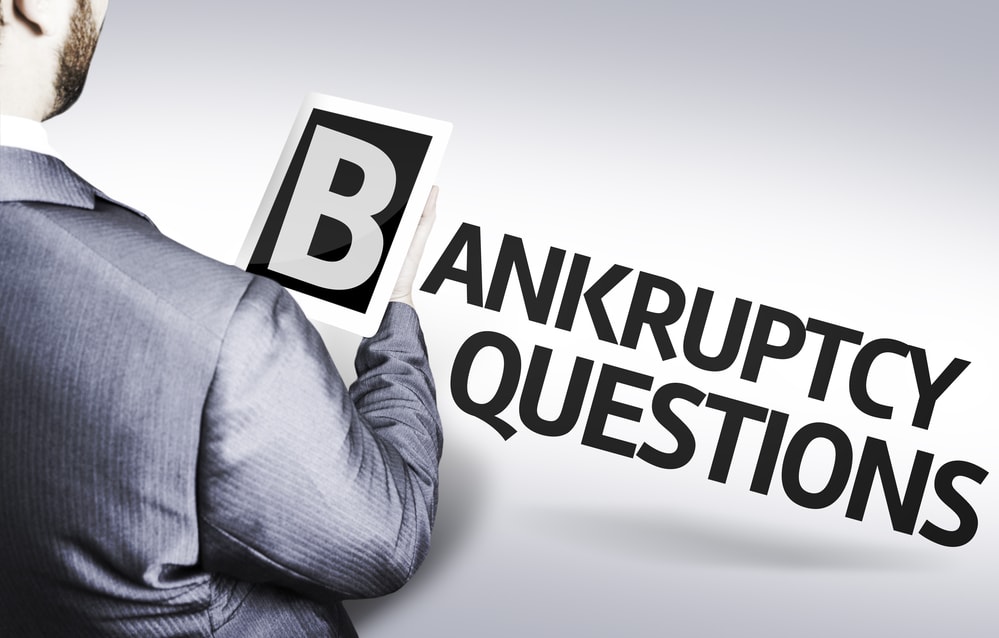Many married debtors, who are thinking about filing for bankruptcy individually, often ask if the bankruptcy filing will affect their spouse. It is common for a married debtor to pursue a bankruptcy filing individually, by him or herself. If a married debtor files for bankruptcy individually, the question of whether their spouse will be affected depends upon a number of factors. However, in most cases, a non-filing spouse will not be affected at all by their spouse’s bankruptcy filing. The factors that need to be considered when a debtor is married but filing in an individual capacity are the following:
- Does your spouse own any non-exempt property jointly with you?
- Does your spouse have any joint debts with you?
- Does your spouse have income of their own?
- Which bankruptcy chapter do you plan on filing, Chapter 7 or Chapter 13?
- Were there any transfers of assets between spouses?
Non-Exempt Property Jointly Owned With A Spouse
In general, a bankruptcy filing will not affect any separate property that spouse owns individually. However, joint property, such as a joint bank account or jointly held real estate, may become part of the bankruptcy estate that is created upon filing of the petition. In New York, a debtor may choose exemptions under either the U.S. Bankruptcy Code (11 U.S.C. § 522) or under New York State law (CPLR § 5205 and Debtor and Creditor Law § 282). The debtor must choose either federal or state exemptions. They cannot mix and match exemptions between both sets. There are major differences between the two sets of exemptions, both set forth the different types of property that a debtor can keep when they file a bankruptcy petition.
These property exemptions are meant to protect the assets necessary to help an unfortunate debtor achieve a successful fresh start. Some examples of the bankruptcy exemptions, which have restricted dollar values, include the following: real property that is used as a primary residence, household goods (such as clothing, furniture, appliances, radio, television, linens, china, kitchenware, medical equipment, personal effects, computer, jewelry), a motor vehicle, qualified retirement accounts, or an interest in a worker’s compensation lawsuit. An interest in a personal injury lawsuit is also protected to a limited dollar value, so a minor injury may be fully protected but a serious injury may only have a small percentage of the claim protected by the exemption. Remember, the goal of the bankruptcy exemption laws is to provide debtors with a fresh start. As part of the fresh start, the law recognizes that a debtor should retain assets to fully be able to take advantage of it.
A debtor’s individual assets and interest in any property that is jointly owned with their spouse (typically considered to be 50% unless otherwise allocated) are part of “the bankruptcy estate.” In a Chapter 7 bankruptcy, the appointed bankruptcy trustee may be able to sell a jointly owned asset if the value is above the exemptions allowed. One common example of non-exempt property is a jointly owned house where the individual debtor’s share in the equity of that property is above the maximum exemption allowed. However, if the trustee sells the non-exempt property, the spouse will receive the value of their interest from the proceeds of the sale and the debtor will receive the amount protected by the exemption plus any additional surplus proceeds, if there are any. The trustee will use the debtor’s non-exempt portion of the proceeds to pay back the creditors who file claims in the case.
It should be noted that the vast majority of Chapter 7 cases are deemed “no asset,” meaning all of the assets in those cases, including any jointly held property, are completely exempt and protected from creditors. Please note that the trustee assigned to the case also has the power under the Bankruptcy Code to undo transfers of property within a certain period of time before filing. Transferring an asset out of one’s name and into their spouse’s name for right before filing a bankruptcy petition does not solve the issue presented above because a Bankruptcy Trustee can undo such a transfer. For more information about property exemptions in bankruptcy, please follow these links:
https://www.debtlawyer.com/property-exemptions/
https://www.debtlawyer.com/what-property-can-i-keep-in-bankruptcy/
Joint Debts With A Spouse
If a debtor files for bankruptcy in an individual capacity without their spouse, the filing typically will not affect the spouse’s credit and will not appear on their credit report. However, if the debtor has joint debts with their spouse, the bankruptcy filing may appear on the spouse’s credit report with regards to the debts that are co-signed by the non-filing spouse. In addition, co-debtors spouses are still responsible for the joint debt. Creditors can usually still pursue collection of any joint debts from the non-filing spouse (unless that spouse is protected by the co-debtor stay, more on that below). The bankruptcy will eliminate an individual debtor’s personal liability for the debts that are discharged, but the bankruptcy discharge will not affect a spouse’s cosigner liability on any joint debts.
Household Income, The Means Test & Disposable Income
If a debtor is married and living in the same household with their spouse, the spouse’s income could be a factor in the debtor’s bankruptcy. Even when filing for bankruptcy in an individual capacity, proof of the non-filing spouse’s income will be required by the Bankruptcy Code. A spouse’s income may affect whether the means test applies in a debtor’s bankruptcy case. Section 707 of the Bankruptcy Code determines whether a debtor may qualify to file for Chapter 7 Bankruptcy, by applying a budget test to debtors who exceed the median income for their household size for the state in which they live. This is referred to as the “means test” as it purports to determine whether a debtor can afford to pay at least some of their debt back in a Chapter 13 Bankruptcy. This qualifying test looks not just at one individual debtor’s income but rather at the income of their entire household in which they live. This can become problematic if a married couple live within the same residence but keep their finances separate. The non-filing spouse must provide proof of their income (in most cases, pay stubs), in order determine if the means test applies and if it does whether the filing spouse passes the test. For more information about the means test, please follow this link:
https://www.debtlawyer.com/the-means-test/
Furthermore, the total amount of disposable income within a household may affect a debtor’s ability to file a Chapter 7 Bankruptcy above and beyond the means test. If a debtor’s combined household income with their spouse is subtracted from their combined household expenses and the remainder is sufficient to fund a Chapter 13 plan, then that debtor will likely be restricted to filing a Chapter 13 petition.
Beyond those issues, the non-filing spouse will be unaffected by their spouse bankruptcy filing unless they have joint debt or property, as mentioned above. Non-filing spouses may even see some benefit from the filing, such as, additional income that was previously used on debt payments will be available to cover household expenses. The only inconvenience in the majority of bankruptcy cases with a non-filing spouses is that they must supply documentation of their income.
What About Chapter 13 Bankruptcy?
If a debtor files a Chapter 13 bankruptcy, joint property is generally not an issue and would only become a potential issue if the case is converted from a Chapter 13 to a Chapter 7. Additionally, if a debtor files for Chapter 13 bankruptcy when they have joint debts with their spouse, the spouse receives the protection of the “codebtor stay”. The Chapter 13 codebtor stay prohibits creditors from collecting from one’s codebtors (a spouse in this instance) during the bankruptcy with only a few exceptions.
Chapter 13 bankruptcy allows debtors to protect their cosigners by paying off cosigned debts under the protection of the codebtor stay. However, creditors may ask the court to lift the codebtor stay if a debtor is not paying off the complete joint debt in their Chapter 13 repayment plan. Additionally, creditors are not bound by the codebtor stay in a few circumstances. First, when the cosigner became liable for the debt in the ordinary course of his or her business. Second, the codebtor stay only applies to consumer debts, so taxes are not covered. The IRS or state taxing authority are still able to collect from a codebtor during a Chapter 13. Finally, if a debtor’s Chapter 13 case is dismissed, closed, or converted to either a Chapter 7 or Chapter 11 bankruptcy case.
https://www.debtlawyer.com/chapter-13-bankruptcy/
David I. Pankin is a Brooklyn bankruptcy lawyer with locations throughout New York and Long Island. If you have any questions regarding bankruptcy, please feel free to contact the Law Offices of David I Pankin, PC at 888-529-9600 or by using our easy online contact form. We have been representing debtors for over 20 years and have filed over 10,000 bankruptcy petitions in the Eastern and Southern Districts of New York.






